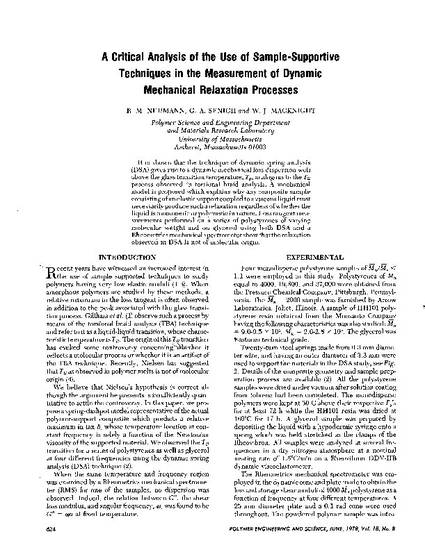
Article
A Critical Analysis of the Use of Sample-Supportive Techniques in the Measurement of Dynamic Mechanical Relaxation Processes
Polymer Engineering and Science
(1978)
Abstract
It is shown that the technique of dynamic spring analysis (DSA) gives rise to a dynamic mechanical loss dispersion well above the glass transition temperature, T0, analogous to the T11 process observed in torsional braid analysis. A mechanical model is proposed which explains why any composite sample consisting of an elastic support coupled to a viscous liquid must necessarily produce such a relaxation regardless of whether the liquid is monomeric or polymeric-in nature. Loss tangent measurements performed on a series of polystyrenes of varying molecular weight and on glycerol using both DSA and a Rheometrics mechanical spectrometer show that the relaxation observed in DSA is not of molecular origin.
Keywords
- Critical Analysis,
- Sample-Supportive,
- Techniques,
- Dynamic Mechanical,
- Relaxation,
- Processes
Disciplines
Publication Date
1978
Citation Information
William MacKnight, R. M. Neumann and G. A. Senich. "A Critical Analysis of the Use of Sample-Supportive Techniques in the Measurement of Dynamic Mechanical Relaxation Processes" Polymer Engineering and Science Vol. 18 Iss. 8 (1978) p. 624 - 627 Available at: http://works.bepress.com/william_macknight/65/
